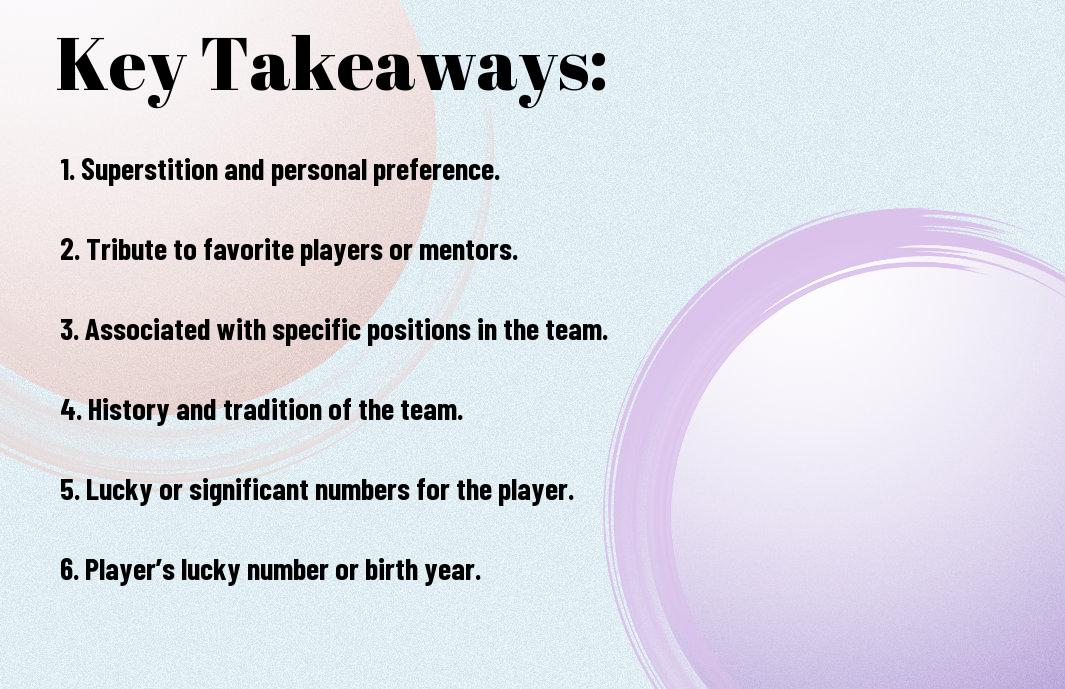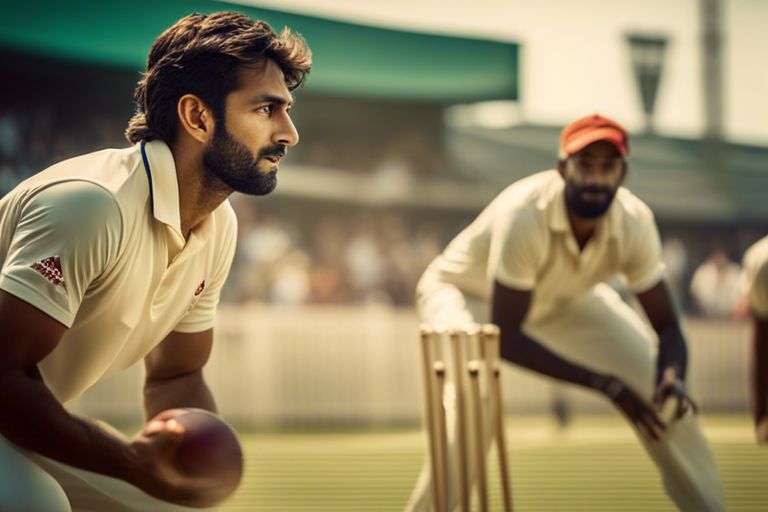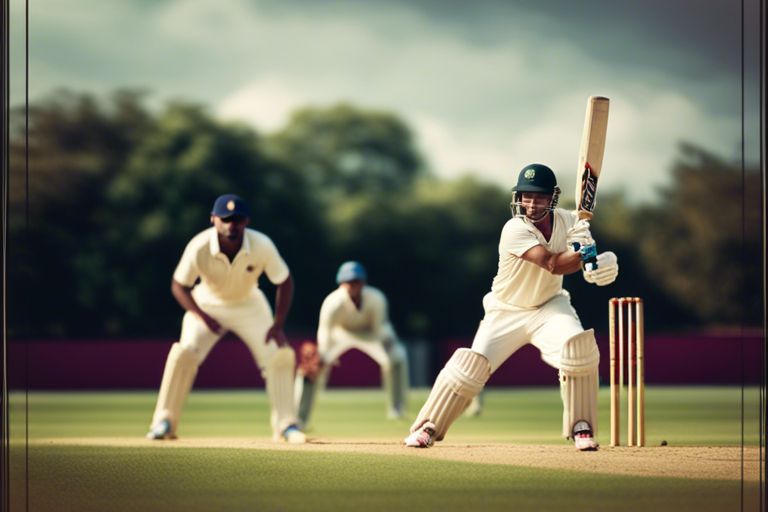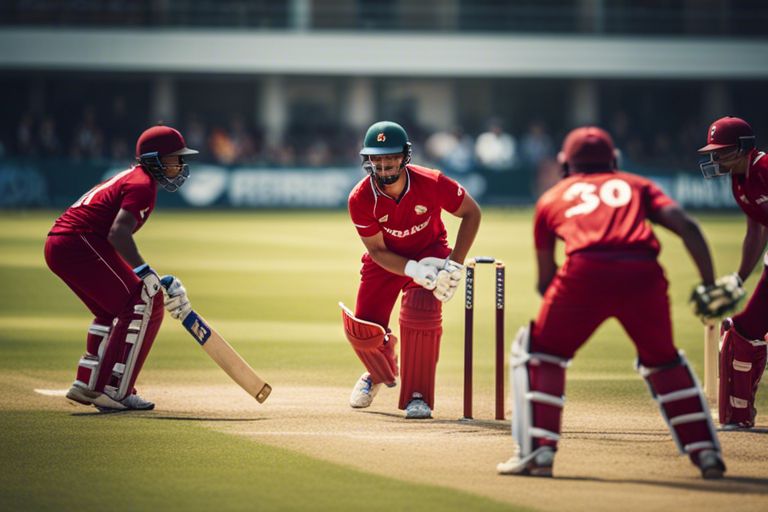Why Do Cricket Players Wear Certain Jersey Numbers?
Have you ever wondered why certain cricket players wear specific jersey numbers? The number on a cricket player’s jersey is not just a random choice. In fact, it holds a significant importance and can convey a lot about the player. Whether it’s the legendary Sachin Tendulkar’s iconic number 10 or Virat Kohli’s preferred number 18, each player’s jersey number has a special meaning attached to it. Understanding the reasoning behind the selection of jersey numbers adds an intriguing layer to the game and offers insight into the players’ personalities, superstitions, and aspirations. So, why do cricket players wear certain jersey numbers? Let’s explore the hidden significance behind these numbers and decipher the stories they tell.

Historical Context
Obviously, the practice of wearing jersey numbers in cricket has a historical context that dates back to the early days of the game. Understanding the historical significance of jersey numbers in cricket can give you insight into why certain numbers are considered important and why players are often associated with specific numbers.
Origin of Numbers in Cricket
Historically, numbers were first introduced in cricket to help spectators and officials easily identify players on the field. The practice originated in the late 18th century, and it quickly became a standard part of the game. Initially, numbers were simply stitched onto the back of the players’ shirts, allowing for easy identification from a distance. Over time, the significance of these numbers grew, and players began to develop personal associations with specific numbers based on their performance and achievements.
Evolution of Jersey Numbering Systems
As the game of cricket evolved, so did the systems for assigning jersey numbers to players. Initially, numbers were assigned based on the batting order, with the opening batsmen given the numbers 1 and 2, followed by the rest of the batting line-up. However, this system has evolved over the years, and players now have the freedom to choose their own numbers based on personal preference or historical significance. Additionally, some teams have adopted specific numbering systems based on player positions or roles, further adding to the significance of jersey numbers in cricket.
Understanding the historical context and evolution of jersey numbers in cricket can provide you with a deeper appreciation for the significance of these numbers and why they hold such importance for players and fans alike.
Significance of Numbers
One of the most fascinating aspects of cricket jersey numbers is their significance. Each number can hold personal, superstitious, or traditional meaning for the player who wears it. In some cases, the number may even hold significance for the team as a whole, or for cricket fans around the world.
Personal Choices and Superstitions
Your jersey number may be a personal choice, influenced by superstitions or lucky numbers that hold meaning for you. Some players have a specific number that they believe brings them luck or gives them a sense of confidence on the field. This can be based on personal beliefs, cultural influences, or simply a number that has felt lucky for them throughout their life. This personal connection to a specific number can influence a player’s choice of jersey number, reflecting their individual identity within the team.
Honoring Legends and Traditions
Another reason why cricket players wear certain jersey numbers is to honor legendary players or uphold team traditions. For example, a young player may choose to wear the same number as their cricket idol, paying homage to the greats who have inspired them. Additionally, some numbers may hold historical significance for the team, such as being associated with a famous victory or a legendary player. By wearing these numbers, players can carry on the traditions and legacies of those who came before them, embodying the spirit of the team’s history as they take to the field.

Regulations and Restrictions
After understanding the significance of jersey numbers in cricket, it is important to be aware of the regulations and restrictions that govern the choice of numbers. These rules ensure uniformity and consistency in the application of jersey numbers across different levels of the sport.
International Cricket Council (ICC) Guidelines
When it comes to international cricket, the jersey number regulations are governed by the International Cricket Council (ICC). According to ICC guidelines, players are required to wear jersey numbers on the back of their shirts during international matches. These numbers are assigned to players based on squad numbers, a system that helps in identifying and distinguishing players on the field. It is important for you to adhere to these guidelines to maintain the integrity of the sport and avoid facing penalties for non-compliance.
National and League-Specific Rules
In addition to ICC guidelines, national cricket boards and specific leagues also have their own set of rules regarding jersey numbers. These regulations may vary from country to country and league to league, so it is essential for you to familiarize yourself with the specific rules of the competition you are participating in. Some leagues may have restrictions on certain numbers, while others may allow players to choose their preferred numbers within a certain range. Understanding and following these rules is crucial in ensuring that you meet the requirements set by the governing bodies of the sport.
By being aware of these regulations and restrictions, you can ensure that you comply with the guidelines set by the ICC and other governing bodies, and avoid any potential penalties or controversies related to jersey numbers. As a cricket player, it is your responsibility to adhere to these rules and contribute to the overall professionalism and integrity of the sport.Do Cricket Players Have Specific Shoe Preferences Based on Their Jersey Numbers?
Cricket players do not necessarily have specific shoe preferences based on their jersey numbers. However, they do prioritize comfort and stability when choosing cricket shoes. These factors are crucial during a cricket shoes comfort test to ensure optimal performance on the field.
The Impact on Fans and Marketing
For cricket fans, jersey numbers are more than just a way to identify players on the field. They are an integral part of the fan experience, helping supporters feel connected to their favorite players and creating a sense of belonging to the team. In addition, jersey numbers play a crucial role in marketing and branding, influencing the sale of merchandise and the overall success of a team’s commercial activities.
Jersey Sales and Branding
The jersey number of a cricket player can significantly impact the sales of team merchandise. Fans often want to wear the same number as their favorite player, and as a result, the most popular jersey numbers can quickly become best sellers. This can have a significant impact on a team’s branding and merchandising efforts, as certain numbers become synonymous with star players and the team’s success. This not only increases revenue for the team but also helps to strengthen the team’s brand and presence in the market.
Fan Engagement and Player Identification
Your jersey number is a key factor in fan engagement and player identification. When you see a player wearing the same number game after game, it becomes a part of their identity, making it easier for you to recognize and connect with them. This is particularly important in a sport like cricket, where the players’ faces may not always be clearly visible during the game. Your connection to a player through their jersey number can create a sense of loyalty and attachment, increasing your overall enjoyment of the sport.

Summing up why cricket players wear certain jersey numbers
So, why do cricket players wear certain jersey numbers? It all comes down to personal preference and superstition. Just like in any other sport, players may have a special number that holds significance to them, or they may choose a number based on the position they play. Additionally, some players may believe that certain numbers bring them luck or good fortune on the field. Whatever the reason, the jersey number a cricket player wears is often a deeply personal choice that can influence their performance on the pitch.
FAQ
Q: Why do cricket players wear certain jersey numbers?
A: Cricket players wear specific jersey numbers for various reasons, including personal preference, superstition, or to honor legendary players. Some players choose numbers that hold personal significance to them, while others may opt for numbers traditionally associated with success in the sport.
Q: Is there any significance to the jersey numbers worn by cricket players?
A: In some cases, cricket players may wear jersey numbers that hold special meaning within the team or the cricket community. For example, the number 10 is often associated with talented batsmen, while the number 7 is often worn by captains or all-rounders. These numbers may carry significance due to the esteemed players who have previously worn them.
Q: Can cricket players change their jersey numbers throughout their career?
A: Yes, cricket players have the flexibility to change their jersey numbers throughout their career. This may be due to a change in personal preference or a desire to start afresh. However, some players may become associated with a specific number and choose to retain it as part of their identity within the sport.






